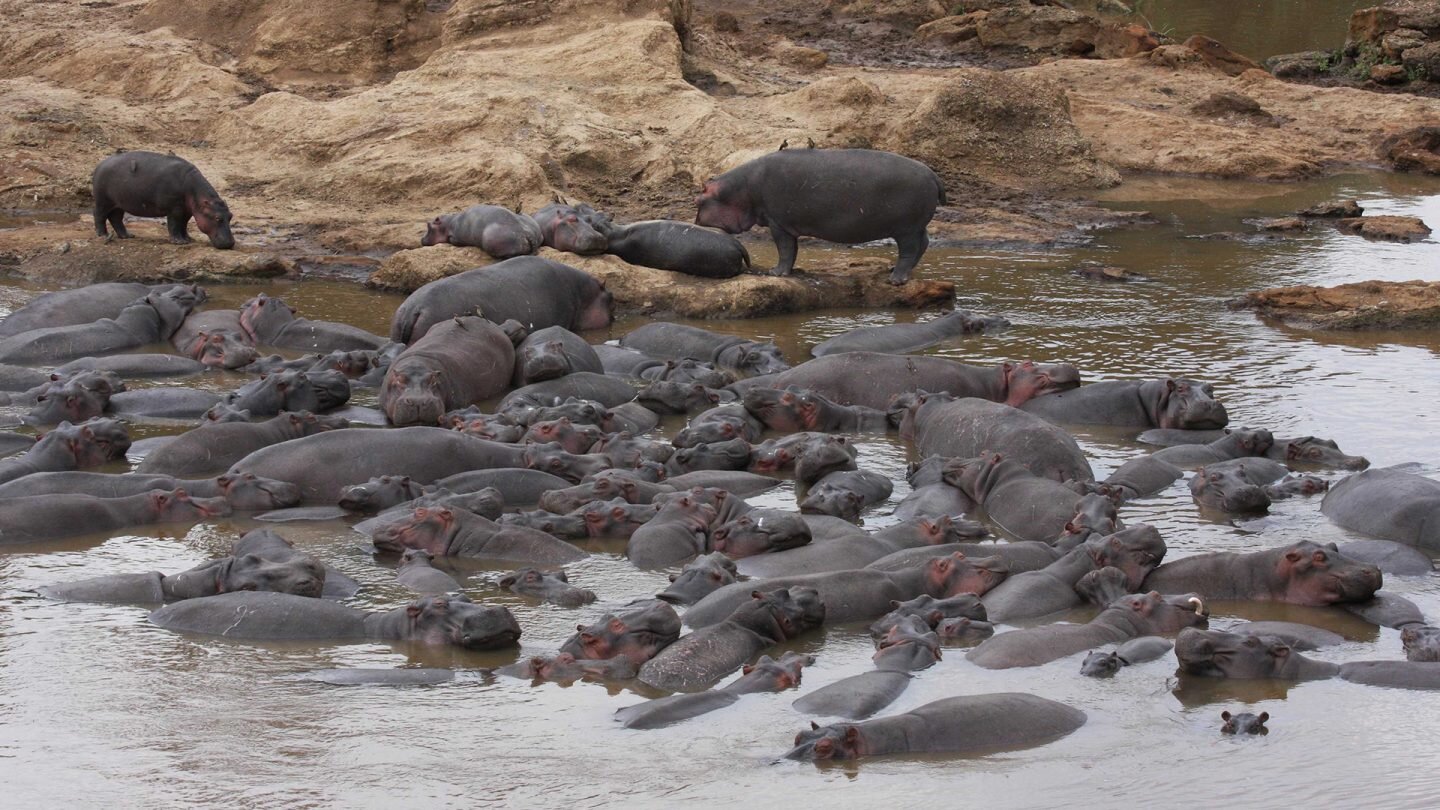Hippos’ Constant Defecating Turns African Pools into Communal Guts
Lauren Barnett
UF CLAS
Hippopotamuses can eat nearly 100 pounds of food daily — and, as a result, they fill the pools where they spend much of their lives with huge amounts of poop.
All that excrement, new research has found, turns the pools into extensions of the hippos’ guts, as bacteria and other microbes expelled into the water survive and are shared among the congregating animals. This “meta-gut,” as the researchers termed it, could have major impacts on the hippos’ ecosystems.
The findings, led by University of Florida biology postdoctoral associate CHRISTOPHER DUTTON, were recently published in Nature’s Scientific Reports. The research team also included UF Assistant Professor of Biology AMANDA SUBALUSKY, as well as collaborators from Yale University and the Cary Institute for Ecosystem Studies.

Christopher Dutton (right) collects water from a hippo pool (Courtesy of Christopher Dutton).
Dutton and his collaborators conducted fieldwork on the Mara River in East Africa, home to over 4,000 hippos. When they aren’t eating on land, hippos spend much of their lives submerged in waterways, gathering in pools to wallow — and defecate. “In some of the hippo pools, there’s so much feces floating on the surface that you can’t tell there’s water beneath it,” Dutton said.
Through a series of field observations, experiments in natural and controlled settings, and the use of RNA sequencing methods, the researchers sought to find out how microbes from the guts of animals could influence their immediate ecosystems. All animals carry microbiomes specific to their individual guts. Inside the body, the microbes perform important functions such as aiding digestion — but what happens when animals poop them out into a shared environment?


